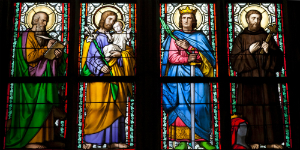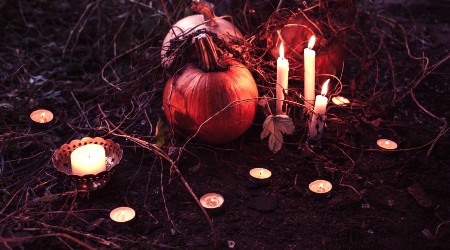We ask you, humbly: don't scroll away.
Hi readers, it seems you use Catholic Online a lot; that's great! It's a little awkward to ask, but we need your help. If you have already donated, we sincerely thank you. We're not salespeople, but we depend on donations averaging $14.76 and fewer than 1% of readers give. If you donate just $5.00, the price of your coffee, Catholic Online School could keep thriving. Thank you.Help Now >
Get smart about science: Sorting through the studies about caffeine and other choices
FREE Catholic Classes
Chicago Tribune (MCT) - Coffee, elixir of the gods.
Highlights
McClatchy Newspapers (www.mctdirect.com)
2/20/2009 (1 decade ago)
Published in Health
Studies say drinking it can lower your risk of developing type 2 diabetes, Parkinson's disease, Alzheimer's disease and mouth cancer. It can prevent cavities. It can make you happier. It can kill a headache. It can make asthmatics breathe a little easier. It can ease the effects on the heart and liver of hard, heavy drinking.
And yet, we are a nation of coffee drinkers and still we have mouth cancer, Parkinson's, Alzheimer's, rotten teeth, unhappiness, headaches, asthma attacks, heart attacks and liver disease. When we go to the doctor, dentist or personal trainer, they almost never write a prescription for a daily trip to Starbucks.
Every day, we sip a steady stream of health news about something we could eat or drink, and how it will help save us from Health Nightmare X _ or help cause it. Avoid refined sugar. Take fish oil pills. Drink coffee. Don't.
So here's the good news, according to experts who study disease and risk: You can pretty much ignore almost all of these health bulletins, with a few exceptions:
Exercise, eat a balanced diet, don't be fat, drink only in moderation and, whatever you do, don't smoke.
"There are some risk factors that have a major impact. Like, there is no doubt smoking kills millions of people," said epidemiologist John Ioannidis of Tufts University School of Medicine in Boston. "But for most lifestyle and diet choices _ I'm not claiming none have an impact, but their impact is likely to be very small, if anything."
This is not to say science is pointless. After all, it was the painstaking work of scientists that conclusively proved smoking is a health disaster.
But being a good consumer of science news means understanding how scientific studies work. Sometimes, findings that sound spectacular may be completely useless to you _ though important to other scientists working on the bigger picture.
For example: A recent study published in the American Journal of Epidemiology followed 39,000 middle-aged Japanese people for 13 years and found that the people who reported drinking one or more cups of coffee a day were about half as likely to get oral, pharyngeal or esophageal cancer as the others.
That sounds like a great excuse to order another cappuccino, since these are some of the deadlier cancers _ only 16 in 100 people diagnosed with esophageal cancer live five years after diagnosis, according to the American Cancer Society.
But before you do, consider that the study's findings tell us only about relative risk _ the cancer risk for coffee drinkers in relation to non-coffee drinkers. Half as much risk sounds like a lot, but the bottom line is that very few people in either group got cancer.
In other words, the absolute risk is low, coffee or no coffee.
So you decide. Is it worth taking up daily coffee drinking to turn your already small risk of oral, pharyngeal or esophageal cancer into an even smaller risk? Keep in mind that buying one small Dunkin' Donuts coffee a day adds up to almost $600 a year. With cream and sugar, it also means absorbing an extra 43,800 calories.
Ask yourself also: Could some other factor be responsible for the decreased cancer risk? Maybe something else that Japanese coffee drinkers tend to do or experience is what's protecting them against cancer. Researchers try to take into account such confounding factors _ such as income levels or health issues _ but they don't always think of everything.
"Ask yourself, who are the coffee-drinking people? Did these people smoke less? Have these questions in the back of your mind," said Sherry Seethaler, author of "Lies, Damned Lies and Science: How to Sort through the Noise around Global Warming, the Latest Health Claims, and Other Scientific Controversies."
Ioannidis said all this doesn't mean the coffee study is worthless.
"If you cut a 4-in-1,000 (cancer) risk down to a 2-in-1,000 risk, but you are talking 100 million people, that may mean many thousands of lives being saved," he said.
"But there is a distinction here about what you are expecting to happen in hundreds of millions of people and what you expect in your own life," he continued. "You might be that one lucky person who gets the benefit, but there may be many others who don't."
It's also important to realize that studies like this are done for reasons other than to change your coffee habit. The idea is to examine unresolved questions in science, and it's rare for any individual study to settle them.
Some researchers have found coffee had no effect on these particular cancers. Some found it actually raised the risk, and others found what the Japanese study found, that it decreased risk.
If the evidence grows for coffee reducing risk, scientists can ask: Could some ingredient in coffee eventually be used to make some kind of medicine? Perhaps studying that ingredient could lead to greater understanding of cancers of the mouth and throat.
"In terms of pushing the science forward, (the study) is useful," Seethaler said. "In terms of informing the public, it is not."
Just listen to the authors of the study themselves. At the end of their paper they speculate that coffee "could be a preventative factor" and the study could lead to medication.
But they also add a piece of familiar advice: "...cessation of alcohol consumption and cigarette smoking is currently the best known way to help reduce the risk of developing these cancers."
And why should we believe that? Because scientific knowledge is like a snowball rolling down a hill. As more studies produce more supporting evidence, the snowball grows until eventually doctors start asking patients to alter their behavior and public health officials call for changes.
The case for a link between smoking and cancer is a really big snowball. The case for a link between coffee and cancer is a very small one. And there are a lot of small snowballs out there.
Asked in a phone interview about coffee studies, Harvard University professor Kimberly Thompson, author of "Risk in Perspective: Insight and Humor in the Age of Risk Management," could practically be heard rolling her eyes.
"Coffee has been around for a long time, with broad exposure in the population and it has been the subject of numerous studies. The evidence is mixed and we haven't seen any big effects, positive or negative," she said.
"So, no need to change your habits unless you start to hear health professionals urgently calling for action."
___
HOW TO SPOT A GOOD STUDY
The better designed the study, the more reliable the results, and the more you might want to pay attention. According to Kimberly Thompson of the Harvard Center for Risk Analysis, here's what to look for:
LESS RELIABLE ... MORE RELIABLE
Anecdote or case report ... Scientific study
Trust results from scientific studies _ especially randomized ones involving a lot of people _ over anecdotes or studies focused on a single person.
Unpublished ... Published and peer-reviewed
Prestigious journals like the Journal of the American Medical Association have fellow researchers and doctors analyze health studies before they go to print, making those studies more reliable than others.
Not repeated ... Reproduced results
One study says a lot less about an issue than many studies that find the same thing.
Nonhuman subjects ... Human subjects
What happens in mice or monkeys might give us a clue as to what happens in people, but it can still be misleading.
No limitations mentioned ... Limitations discussed
No study is perfect, so good ones always include a discussion of their flaws or weaknesses.
Not compared to previous results ... Relationship to previous studies discussed
Good studies also put their results in context.
___
GET SMART ABOUT SCIENCE NEWS
When assessing health news, think of yourself as a consumer of information and decide whether you're buying. Harvard professor and author Kimberly Thompson offers some basic advice:
1. Get empowered. Ask yourself: Who put out the information and do they have an agenda? Am I getting the whole story? Who were the people in the study? Am I really like them or not? Do I have a health condition that means the results don't apply to me?
2. Consider trade-offs. If eating a specific food might raise your risk slightly of getting some disease, consider all the risks and benefits. Do you love that food? "Your pleasure is worth valuing," Thompson said. Consider that adding something to your diet _ like coffee _ for a health benefit might mean also adding some health risk, like consuming many thousands of extra calories in cream and sugar.
3. And always remember, "there is not a magic bullet," Thompson said. It's what you do over time _ whether you exercise, eat well and so on _ that matters.
___
© 2009, Chicago Tribune.
Join the Movement
When you sign up below, you don't just join an email list - you're joining an entire movement for Free world class Catholic education.
-

-
Mysteries of the Rosary
-
St. Faustina Kowalska
-
Litany of the Blessed Virgin Mary
-
Saint of the Day for Wednesday, Oct 4th, 2023
-
Popular Saints
-
St. Francis of Assisi
-
Bible
-
Female / Women Saints
-
7 Morning Prayers you need to get your day started with God
-
Litany of the Blessed Virgin Mary
Daily Catholic
 Daily Readings for Saturday, November 02, 2024
Daily Readings for Saturday, November 02, 2024 St. Victorinus of Pettau: Saint of the Day for Saturday, November 02, 2024
St. Victorinus of Pettau: Saint of the Day for Saturday, November 02, 2024 Daily Prayer For The Holy Souls: Prayer of the Day for Saturday, November 02, 2024
Daily Prayer For The Holy Souls: Prayer of the Day for Saturday, November 02, 2024- Daily Readings for Friday, November 01, 2024
- St. Valentine Berrio-Ochoa: Saint of the Day for Friday, November 01, 2024
- Litany of the Saints: Prayer of the Day for Friday, November 01, 2024
![]()
Copyright 2024 Catholic Online. All materials contained on this site, whether written, audible or visual are the exclusive property of Catholic Online and are protected under U.S. and International copyright laws, © Copyright 2024 Catholic Online. Any unauthorized use, without prior written consent of Catholic Online is strictly forbidden and prohibited.
Catholic Online is a Project of Your Catholic Voice Foundation, a Not-for-Profit Corporation. Your Catholic Voice Foundation has been granted a recognition of tax exemption under Section 501(c)(3) of the Internal Revenue Code. Federal Tax Identification Number: 81-0596847. Your gift is tax-deductible as allowed by law.








 Daily Readings for Saturday, November 02, 2024
Daily Readings for Saturday, November 02, 2024 St. Victorinus of Pettau: Saint of the Day for Saturday, November 02, 2024
St. Victorinus of Pettau: Saint of the Day for Saturday, November 02, 2024 Daily Prayer For The Holy Souls: Prayer of the Day for Saturday, November 02, 2024
Daily Prayer For The Holy Souls: Prayer of the Day for Saturday, November 02, 2024

